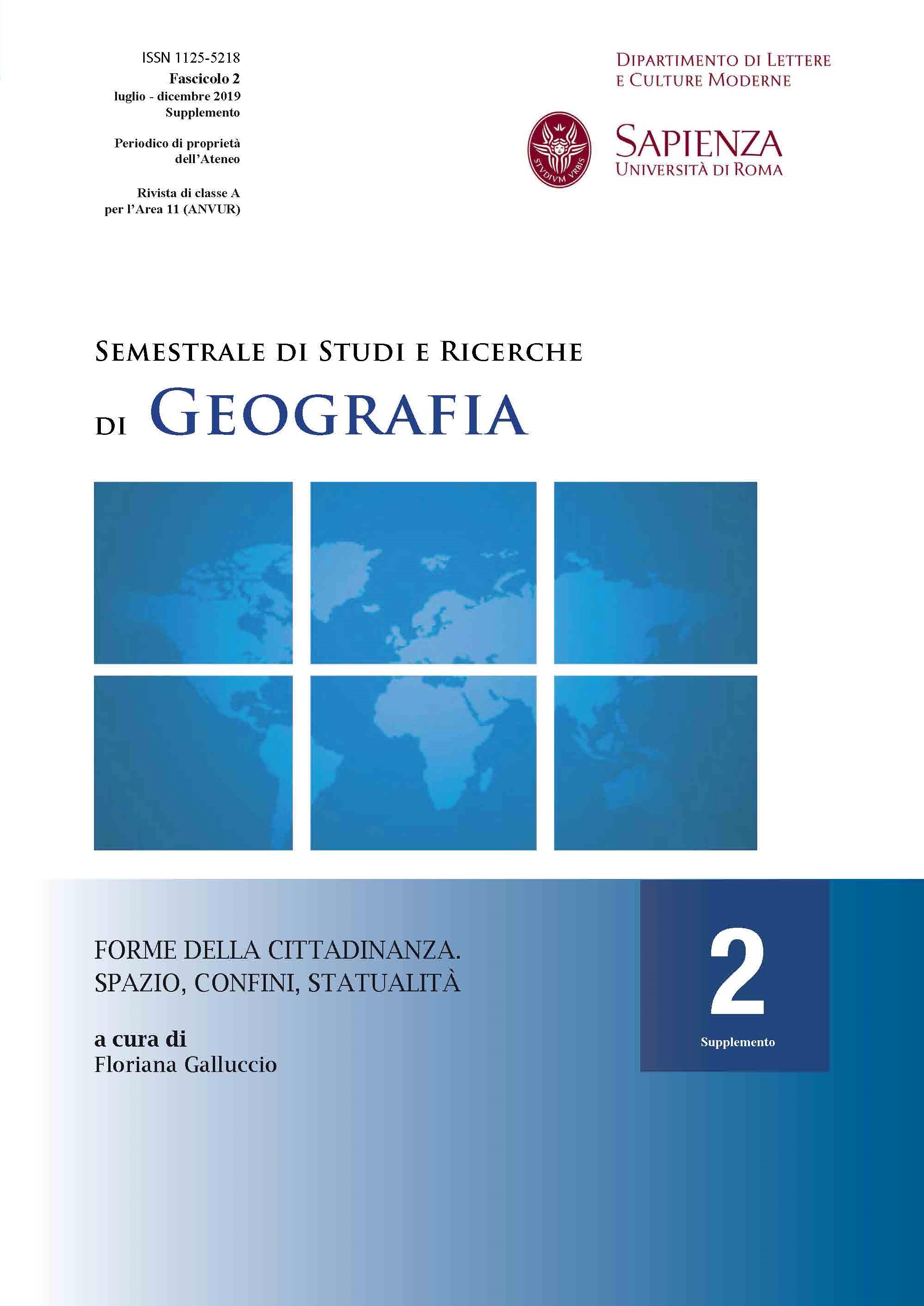Disegno territoriale e cittadinanza nei percorsi dello Stato italiano: qualche nota in chiave storico-istituzionale
DOI:
https://doi.org/10.13133/1125-5218.15715Abstract
Territorial design and citizenship in the Italian State evolutions: some notes in historical istitutional perspective
The article considers the relationship between administrative districts and citizenship in Italy from an historical point of view. Since the founding of the national State, there has been a gap between the constitutional notion of territory, coming from revolutionary France, and a practice of citizenship, which was still predominantly local. The high investment on this level by the territorial actors made the issue of administrative boundaries politically sensitive. As governments also tended to use institutional geography in a political way, there prevailed a negotiating practice through which the communities tried to defend their position and if possible, to improve it, making this element a testing ground for citizenship. While the fascist regime manipulated the territorial fabric more freely, the Republic, long faithful to the pattern of a weak centralism, stimulated by the constitutional and by the European provisions, has recently adopted a non-hierarchical territorial design, intending to put the values of citizenship at the centre. The process, however, has entered a phase of stalemate, which does not yet allow to evaluate the effects of the paradigm change on the territorial design.
Découpage territoriale et citoyenneté dans les parcours de l’État italien: quelque note en perspective d’histoire institutionnel
L’article considère le rapport entre l’organisation de l’espace administratif et la citoyenneté en Italie en perspective historique. Depuis la fondation de l’État national, il y a eu un décalage entre la notion constitutionnelle de territoire, d’origine française, et la pratique d’une citoyenneté principalement fondée sur la dimension locale. L’investissement important sur ce plan des acteurs territoriaux a rendu la question des limites administratives, un sujet politiquement sensible. Vu que les gouvernements tendaient eux aussi à utiliser politiquement la géographie institutionnelle, une pratique de négociation a fini pour prévaloir, à travers laquelle les communautés essayèrent de défendre leur propre position et, si possible, l’améliorer, tout en rendant cet élément un terrain d’essai de la citoyenneté. Alors que le fascisme manipulait le découpage territorial ‘plus librement’, la République fut longtemps fidèle aux schémas du ‘centralisme
faible’, stimulé par la dictée constitutionnelle et par les exigences européennes, elle a juste récemment adopté une conception non hiérarchique du territoire, qui a voulu mettre au centre les valeurs de la citoyenneté. Le processus se trouve cependant dans une phase d’arrêt, qui ne permet pas encore d’évaluer les retombées du changement de paradigme sur le découpage territorial.
Downloads
Published
Issue
Section
License
Gli autori che pubblicano su questa rivista accettano le seguenti condizioni:- Gli autori mantengono i diritti sulla loro opera e cedono alla rivista il diritto di prima pubblicazione dell'opera, contemporaneamente licenziata sotto una Licenza Creative Commons - Attribuzione che permette ad altri di condividere l'opera indicando la paternità intellettuale e la prima pubblicazione su questa rivista.
- Gli autori possono aderire ad altri accordi di licenza non esclusiva per la distribuzione della versione dell'opera pubblicata (es. depositarla in un archivio istituzionale o pubblicarla in una monografia), a patto di indicare che la prima pubblicazione è avvenuta su questa rivista.
- Gli autori possono diffondere la loro opera online (es. in repository istituzionali o nel loro sito web) prima e durante il processo di submission, poiché può portare a scambi produttivi e aumentare le citazioni dell'opera pubblicata (Vedi The Effect of Open Access).


